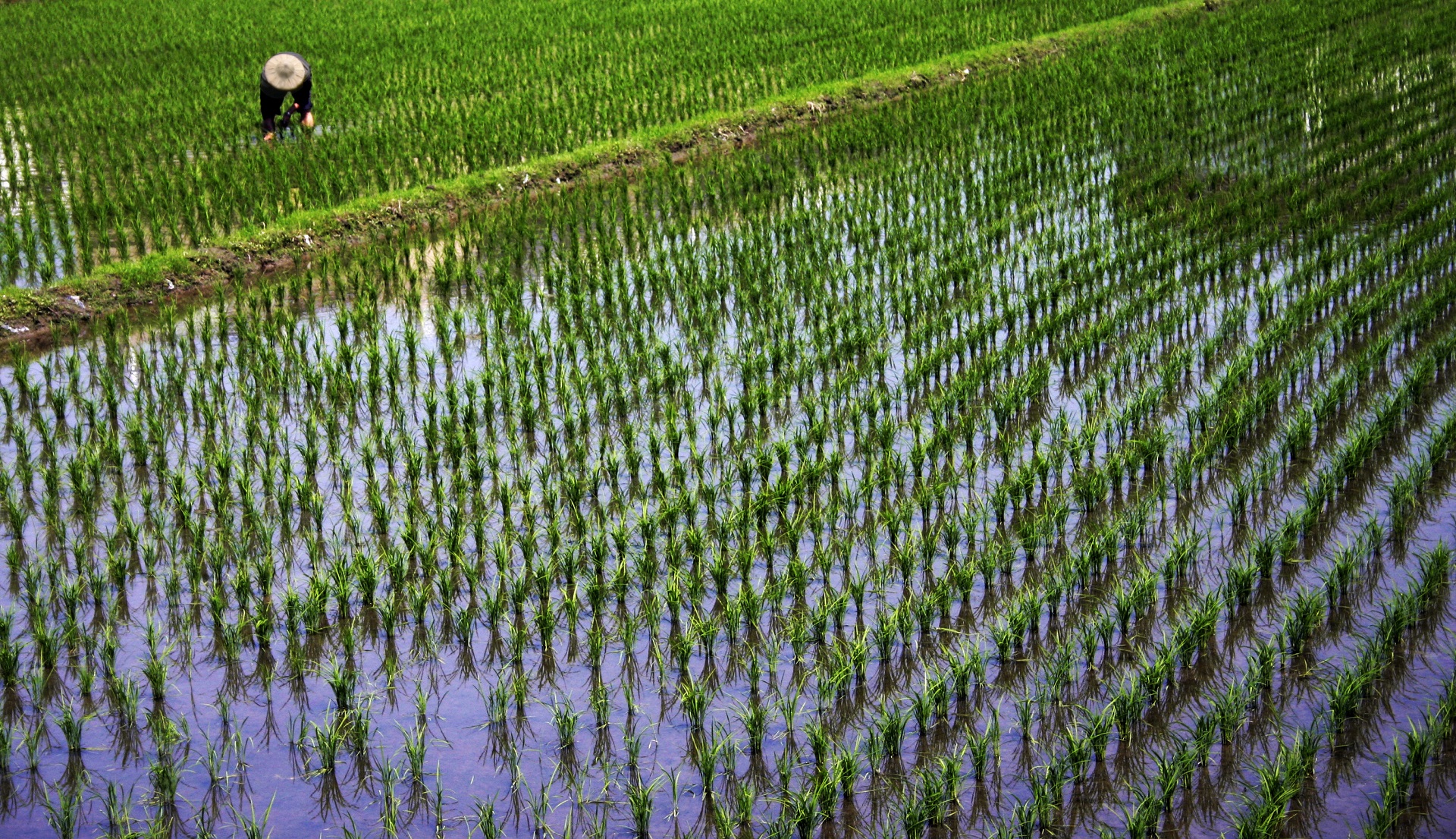Researchers look to nature to pull water from the air›››
Rice fields using electric biochar
release more methane
Additive speeds up electron flow, boosting emissions up to 70 percent 20 Oct 2025

Rice paddies take up about 9 percent of global agricultural land and pump out loads of methane, which is 28 times more potent than carbon dioxide.
Adding electrically charged biochar, though it increases crop yield and has often been used for its sustainable properties, makes them even gassier. A new study, in Springer Nature Link, reveals that soils treated with graphene-enhanced biochar produce up to 70 percent more methane.
This is because biochar’s conductivity helps electrons move faster through dissolved organic matter — like giving soil a power boost. The extra electron flow enhances methane production.
This means biochar isn’t always a climate-friendly option. In rice farming, its electrical side effects could mean more greenhouse gas than less.
More like this: Brewing strength by transforming coffee grounds waste
Get the latest articles, news and other updates from Khalifa University Science and Tech Review magazine
